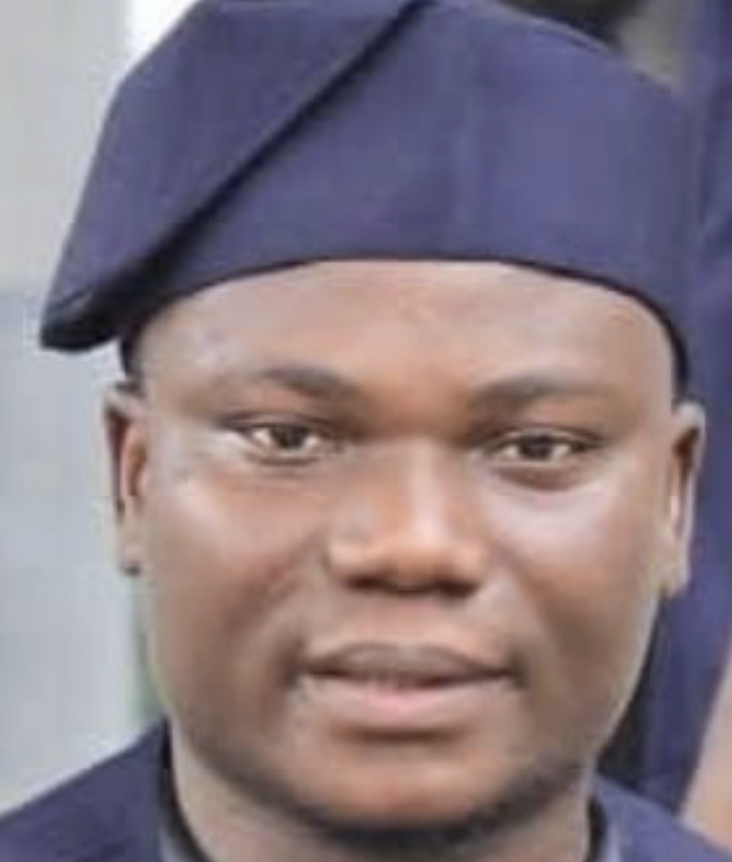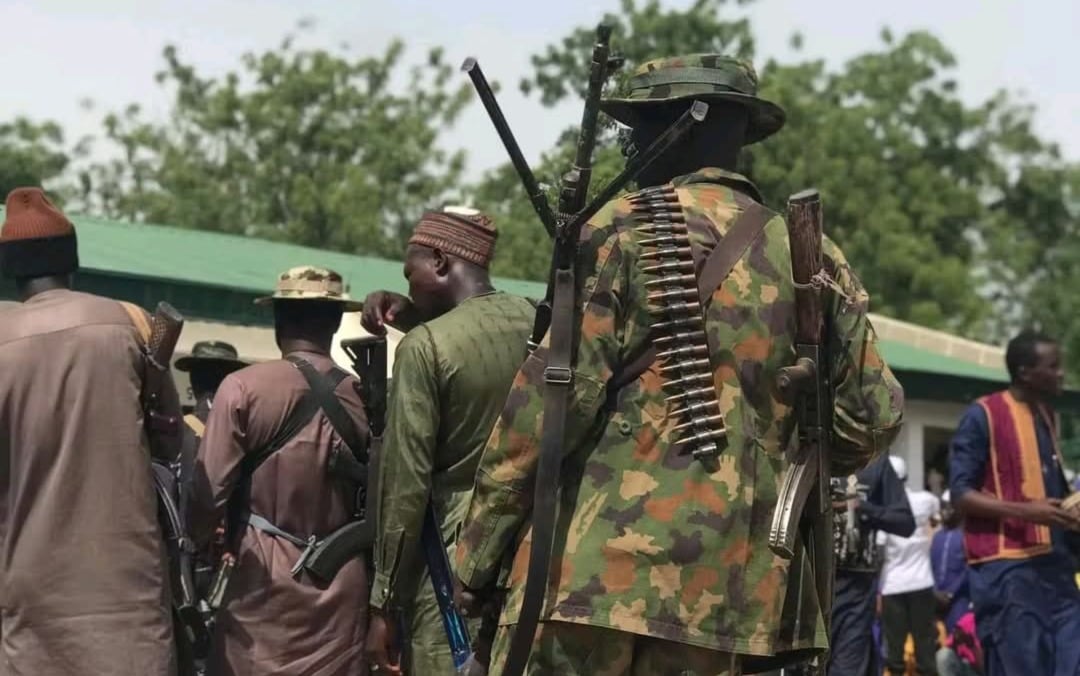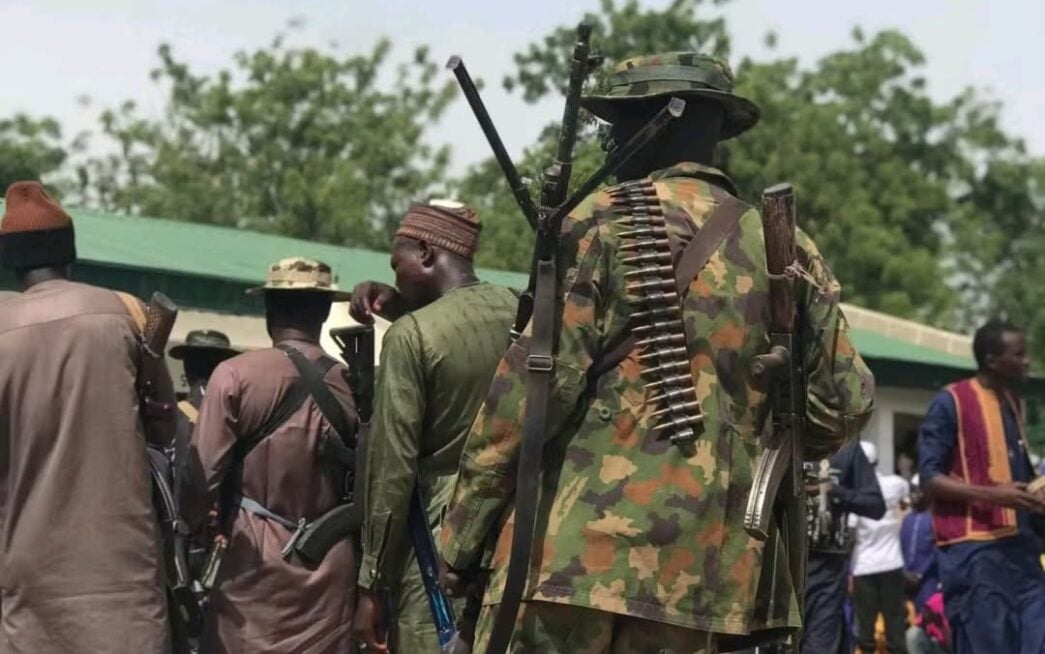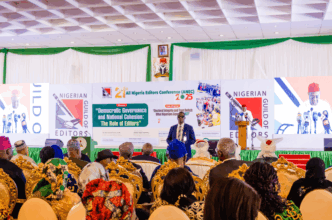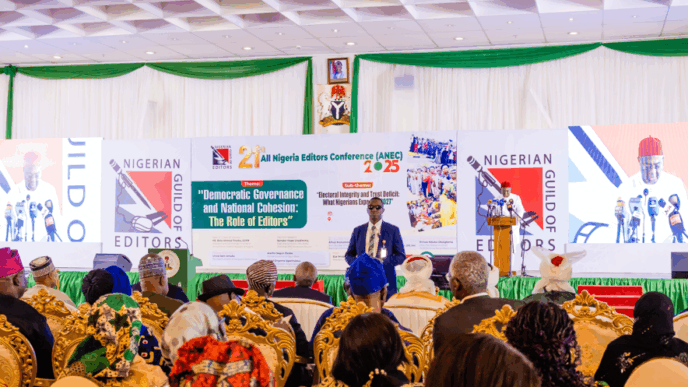File photo: Bandit leaders at a peace meeting
A persistent and intricate conspiracy theory has woven itself into the fabric of geopolitical discourse. The propounder; Muhammed Jamiu Adoke, proposing that the escalating insecurity in Nigeria is not a mere failure of domestic policy but a deliberately orchestrated phenomenon designed to provoke foreign military intervention. This narrative posits that a complex and shadowy coalition of domestic state actors, ambitious politicians, the international community, and the terrorist groups themselves are collectively amplifying violence and chaos. Their purported endgame is to create a pretext so compelling that it lures the United States, especially as President Donald Trump had openly accused Nigeria of looking aloof while genocide is being committed on the Christian Communities across the country. Known for his bellicose rhetoric, the intensified efforts of Nigeria’s enemies is meant to spur Trump into launching a full-scale military invasion of Nigeria under the guise of counter-terrorism.
The theory finds its catalyst in the public persona of President Donald Trump, whose foreign policy is often characterized by impulsive threats and a preference for military solutions. His alleged threats to “attack terrorists in Nigeria and save Christians in Nigeria” are interpreted not as isolated statements but as a signal that was eagerly received by various vested interests. Proponents argue that certain elements within Nigeria’s political elite, entrenched in systemic corruption, political interests and facing dwindling public support, saw an opportunity in this American posture. A calculated escalation of violence, particularly in the form of intensified attacks by groups like Boko Haram, Jaguda, ISWAP, and bandit militias, are being leveraged to internationalize the conflict. For these actors, a US invasion, while destabilizing, would serve to redirect public anger, create new avenues for illicit wealth through wartime economies, and potentially allow them to consolidate power under the umbrella of a security partnership with a global superpower, thereby ensuring their political survival.
Concurrently, the conspiracy extends to the terrorists themselves, who are theorized to be not merely independent actors but pawns in a larger game. By dramatically increasing the scale and brutality of their operations, they achieve two objectives: they guarantee sustained international media attention and they directly test the resolve of a US administration known for its volatile reactions. An American military response would, perversely, serve to legitimize these groups on a global stage, elevating them from regional insurgencies to adversaries of the United States. This newfound status would be a powerful recruitment tool, attracting foreign fighters and funding, and fundamentally altering the group’s stature. The chaos of an invasion would provide them with the perfect environment to expand their influence, seize more territory, and entrench themselves further under the cover of widespread conflict.
The international dimension of this theory implicates other global powers and economic interests that view a stable and dominant Nigeria as an obstacle to their own strategic ambitions. A strong Nigeria is a cornerstone of African political and economic independence, and its potential as a regional hegemon is seen as a threat to neocolonial structures of influence and resource extraction. By tacitly encouraging or merely standing aside as the situation deteriorates, these international players create a permissive environment for the crisis to brew. The ultimate goal is to use a US-led invasion as a strategic hammer to shatter Nigerian stability, thereby crippling the West African region and opening it up to renewed external control, all while the world is distracted by the spectacle of a counter-terrorism mission. The resulting power vacuum and balkanization would make it easier for multinational corporations and foreign governments to negotiate exploitative deals with fragmented and weak successor entities, securing access to Nigeria’s vast natural resources without the challenge of dealing with a unified and sovereign state.
Advertisement
One would wonder how, within the space of three weeks, after Trump’s avowed threat to attack terrorists in Nigeria if the country doesn’t ‘act fast’, so many cases of revamped attacks by terrorists have increased. This month of November alone, Nigeria has experienced over 200% increase in terrorist attacks compared to any other time since 2023. That alone should open our eyes to the dangers abound and the fact that enemies have converged in full force, to set traps for our country! Our Nigeria today is not only facing cries from insecurity, but is also confronted with sabotage from polticians who see foreign interventions as their ‘easy-way’ to governance.
In this dark and convoluted narrative, the suffering of the Nigerian people becomes a strategic asset in a high-stakes game of geopolitical chess. Every bomb blast, every mass abduction, every outcry from opposition parties and every village overrun is cynically viewed as another persuasive data point in the case for foreign intervention. The conspiracy theory ultimately suggests that the true war is not just on the ground between militants and the state, but a hidden war of provocation, where increased insecurity is the primary weapon used to manipulate global powers into acting against their own long-term interests and the interests of the African continent, all to serve the narrow, selfish agendas of a select few who thrive in the shadows of chaos. The author of this theory hopes that Nigeria overcomes her challenges. That can only be achieved when Nigerians, Muslims and Christians alike, collectively agree to the fact that we are facing common enemies in terrorism, banditry, meddlings of international communities, and bad political opposition(s)!
May the sun shine tomorrow…
Jamiu Adoke writes from Abuja, Nigeria.
Advertisement
Views expressed by contributors are strictly personal and not of TheCable.
